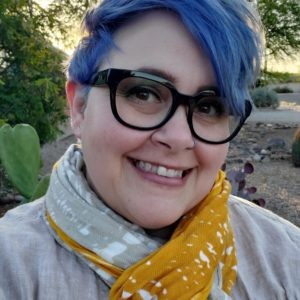Over the last seven months, I’ve been accused of sowing hate and division with my social media posts. This summer, I lost a lifelong friend because of it.
After George Floyd was killed, I began writing posts about racial justice, including running a white privilege exercise. On the first day of this exercise, this person posted the following:
All I’ve seen this last year is all of the scholarships available to Blacks, Mexicans, Asians, etc. No scholarships specifically for white people. This last year the ACT /SAT was made easier for the “disadvantaged.” I’d like to understand specifically what privileges you had and when you think you had them. And if you were told back then that you were privileged how would that have made you feel?

Kim Brewer
My response to them included points about the financial burden of higher education for minority households, the pay gap between whites and minorities, and the SAT/ACT bias against minorities. Regarding personal life, I said, “You know exactly how poor we were. And I’ll be the first to admit that our poverty created problems. But any problems we had were never because of our skin color. And because our problems were not based on our race, we had white privilege. It should tell you something when I, someone who grew up poor, admits to having white privilege.”
Throughout the summer, this person continued to periodically comment on my posts, but it all came to a head Aug. 18, when I posted an article about voter suppression:
They sent me one final message before blocking me:
I’ve struggled with your posts for many months now. I’m saddened that instead of making sure everyone knows Jesus’ love of everyone, much of your messaging invokes hate, hate of identity, darkness and hopelessness. Believers are God’s beloved sons and daughters, we are created in his image, and wholly redeemed by Jesus’ blood. Best of luck and goodbye.
After receiving this message, I hesitated posting anything even remotely polarizing.
But after the insurrection at the Capitol on Jan. 6, I felt compelled to speak out once again.
For hours I watched in disbelief and anger as the events unfolded. The mostly white insurrectionists stormed the Capitol and were largely unchallenged by law enforcement. I made a post that, based on the summer’s events at peaceful protests, the scene would likely look drastically different had the people storming the Capitol been Black.
Again, I was accused of stirring up hate instead of hope. And maybe they’re right.
“I don’t call out injustice to sow division. I call it out because, as a Christian, I am obligated to do so.”
Because I, in fact, do hate the systematic injustices that Black people and other persons of color face on a daily basis and want others to hate these injustices as much as I do. But I don’t call out injustice to sow division. I call it out because, as a Christian, I am obligated to do so.
Amos 5:24 says that justice rolls down like waters and righteousness like an ever-flowing stream. Karen Lebacqz writes about a river behind her house and how, in an El Nino year, the river flooded and completely changed the landscape: “Biblical justice has this character, all-encompassing and requiring entirely new systems and structures and not just single acts of giving to each what is due. Justice is not simply a principle or standard but rather a command that is powerful, pervasive, and majestic.”
Justice and righteousness will only occur when we all first acknowledge the horrific state of affairs. You have to know what’s wrong and why it’s wrong before you can fix it.
Striving to be colorblind is not the answer. To be colorblind refuses to acknowledge that Black and brown people are treated differently in this country. We must not only see color but honor the diversity that comes from it while also understanding and mourning its effects on someone’s experience.
I will continue to call out injustice when I see it and stand in solidarity with my Black and brown siblings. If that is seen as sowing hate, so be it. Because I truly believe we all belong to each other and that unity in Christ can only happen when there is equity for all.
Kim Brewer serves as associate pastor of Pantano Baptist Church in Tucson, Ariz.


